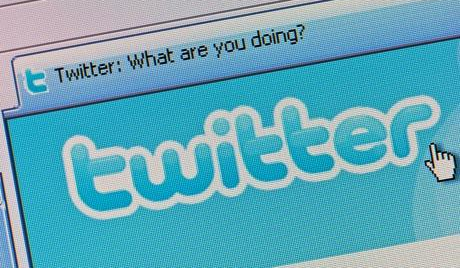'Tech-injunction' gags Twitter, Facebook users: Why super-injunctions only apply to Britain

An injunction was granted yesterday in London which specifically barred Facebook and Twitter users in the United Kingdom from publishing information pertaining to a court case.
While British courts cannot police the entirety of Twitter or its users, anyone in the United Kingdom who is found to have broken this could face contempt of court charges.
Perhaps I spoke too soon; naively thinking Twitter would 'revolt' against such gagging orders.
The injunction, granted by a high court judge in Britain, specifically bars social media users of Facebook and Twitter, as well as other media from identifying the names of those involved in a case regarding the switching off of a persons' life-support.
The order was issued as a result of the events on Twitter over the weekend, with names purporting to owning super-injunctions were published by anonymous users. It comes as questions relating to freedom of speech and the freedom of the presses are asked.
Twitter's UK traffic reaching its highest traffic level ever on Monday as names spread across the service.
Because the injunction is able to be reported, it means the court order is not a 'super-injunction'.

But as super-injunctions are seemingly a British-only concept, with the exception of U.S.-authority issued National Security Letters which act in a similar capacity to super-injunctions, why are American's baffled at the concept that one's right to free speech could be limited?
Super-injunctions: A very British affair
Across the pond to the United States, the right to freedom of speech is constitutionally bound. Though the United Kingdom has a constitution, it is uncodified and therefore evolutionary, malleable and continually being edited and moulded by acts of law.In the United States, the First Amendment protects freedom of speech and expression. While one is allowed to walk down a street without fear of harm, it does polarise to allow such acts as burning a holy book, like a Qur'an, which sparked violent protests in the Middle East.
But differences in the law make for a wide range of Gawker-style websites, from TMZ which reported the death of Michael Jackson and the rise of citizen journalism, and unrestricted and unchecked accusations flying around social media sites.
The BBC points out that in the United States, "a published statement about a public figure is assumed to be true and complainant must prove it's false", while the reverse is true in Britain with the defendant must prove it to be true.
For a super-injunction to be ordered, one key element is the balance of the equities: "testing the harm of publishing against the rights of the publisher". The First Amendment alone makes this very difficult to clear.
While super-injunction society is infringing ordinary freedom of speech, it does align social media sites like Twitter and Facebook with other traditional news outlets.
Citizen journalism may only be able to capture specific events in time, like the Hudson River plane crash and arguably the raid which led to the death of Osama bin Laden. But citizen journalists with cameraphones and social media access may be given as a result the same rights and freedoms, but also restrictions as the members of the press.
Related content:
- Super-injunctions: Could the freedom of speech lie in Twitter?
- Freedom of expression online: How far should it go?
- USA PATRIOT Act and the controversy of Canada
- US subpoenas Wikileaks tweets, and why this could affect you